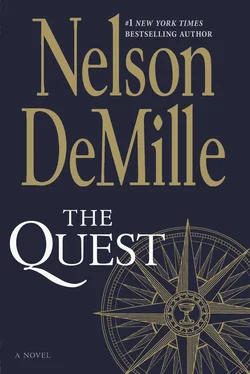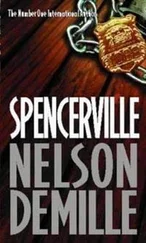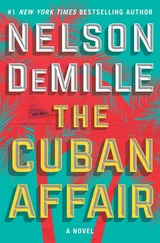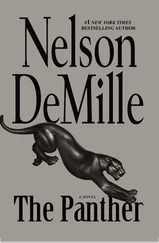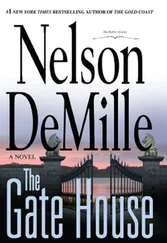Nelson Demille - The Quest
Здесь есть возможность читать онлайн «Nelson Demille - The Quest» весь текст электронной книги совершенно бесплатно (целиком полную версию без сокращений). В некоторых случаях можно слушать аудио, скачать через торрент в формате fb2 и присутствует краткое содержание. Год выпуска: 2013, ISBN: 2013, Издательство: Center Street, Жанр: Триллер, на английском языке. Описание произведения, (предисловие) а так же отзывы посетителей доступны на портале библиотеки ЛибКат.
- Название:The Quest
- Автор:
- Издательство:Center Street
- Жанр:
- Год:2013
- ISBN:1455576425
- Рейтинг книги:5 / 5. Голосов: 1
-
Избранное:Добавить в избранное
- Отзывы:
-
Ваша оценка:
- 100
- 1
- 2
- 3
- 4
- 5
The Quest: краткое содержание, описание и аннотация
Предлагаем к чтению аннотацию, описание, краткое содержание или предисловие (зависит от того, что написал сам автор книги «The Quest»). Если вы не нашли необходимую информацию о книге — напишите в комментариях, мы постараемся отыскать её.
The Quest — читать онлайн бесплатно полную книгу (весь текст) целиком
Ниже представлен текст книги, разбитый по страницам. Система сохранения места последней прочитанной страницы, позволяет с удобством читать онлайн бесплатно книгу «The Quest», без необходимости каждый раз заново искать на чём Вы остановились. Поставьте закладку, и сможете в любой момент перейти на страницу, на которой закончили чтение.
Интервал:
Закладка:
This, Purcell thought, was the last that Father Armano had seen of his native land, and he must have realized as he was walking to Alcamo with the other young men that he might never see it again.
Vivian said, “This is beautiful. Completely unspoiled.”
Purcell noticed there was very little vehicular traffic, but there were a good number of donkeys and carts on the road, and a lot of people walking and biking. The villages, as expected, were picturesque-white stuccoed houses with red tile roofs, and church bell towers in even the smallest town. “They must pray a lot.”
Mercado said, “I’m sure they’re all in church every Sunday and holy day. And, of course, for weddings, funerals, baptisms, and such, not to mention Saturday confessions.” He added, “They are a very simple, religious people and there are not many like them in Europe anymore.”
Purcell suggested, “You should move here, Henry.”
“After you, Frank.”
Vivian said, “I can see having a summer place in Sicily.”
Mercado reminded her, “You don’t speak the dialect.”
Purcell pointed out, “You both spoke to Father Armano.”
Mercado explained, “He spoke standard Italian, a result I’m sure of his seminary training and his time in the army.”
“Are we going to have trouble speaking to the citizens of Berini?”
“Sicilians understand standard Italian when they want to.” He added, “The priest will understand my Italian. And the younger people as well, because of television and cinema.”
“Then maybe we’ll get some answers.”
Mercado informed them, “Sicilians don’t like to answer questions, especially from strangers.”
“We’re doing a nice story for L’Osservatore Romano on their native son.”
“Doesn’t matter. They are suspicious of the outside world.”
“And with good reason.”
Vivian suggested, “Use your charm, Henry.”
Purcell said, “We may as well turn around now.”
Mercado ignored that and said, “The key is the village priest.”
They reached Corleone, consulted the road map and the signs, and headed southwest into the higher hills.
It would not have been too difficult, Purcell thought, to walk downhill to Alcamo. But it would not have been an easy journey home to Berini, on foot, though a soldier returning home would not think about that.
They had spotted a few classical Roman and Greek ruins along the way, and Mercado informed them, “The Carthaginians were also here, as well as the Normans, the armies of Islam, and a dozen other invaders.” He further informed his audience, “Sicily was a prize in the ancient world, and now it is the land that time forgot-like Ethiopia.”
“The world changes,” Purcell agreed. “Wars have consequences.”
“I have an English cousin who served with Montgomery, and he may have passed through here in ’43.”
“We’ll keep an eye out for anyone with a family resemblance.”
The village of Berini was strategically located at the top of a hill that rose above the valley, and the one-lane road hugged the side of the slope and wrapped around it like a corkscrew until it abruptly ended at a stone arch, which marked the entrance to the village.
Purcell drove through the arch and followed a narrow lane between whitewashed houses. The few pedestrians stood aside and eyed them curiously as they passed by.
A minute later they entered a small, sunlit piazza, and at its far end was a good-sized stone church, which according to the Vatican directory was San Anselmo. The parish priest, if the information was up to date, was Father Giorgio Rulli. There were no other priests listed.
On the right side of the square was a row of two-story stucco buildings, one of which had an orange awning and a sign that said, simply, “Taverna.” On the other side of the piazza was a place called “Caffe,” and next to that was a tabaccheria, a sort of corner candy store. That seemed to be the extent of the commercial establishments, and the other structures appeared to be residences and a village hall. A few miniature Fiats were parked around the perimeter of the piazza, but the main form of transportation seemed to be bicycles. Purcell noticed there were no donkeys.
The outdoor seating under the awning and umbrellas of the taverna and caffe was filled with people, and Purcell noted they were all male. He could also see that their full-sized Fiat had attracted some attention. It was a little past three o’clock and Mercado said, “This is the riposo-the traditional four-hour afternoon break.”
Purcell inquired, “Break from what?”
Vivian suggested, “Park someplace.”
“I’m looking for a parking meter.”
“Wherever you stop the car is a parking place, Frank.”
“Right.”
He moved the Fiat slowly over the cobblestoned piazza and stopped a respectable distance from the church. They all got out and stretched. It was cooler here at the higher elevation, and the air smelled of woodsmoke.
They had been advised by one of Mercado’s colleagues to dress modestly and in muted colors. The rural Sicilians, the colleague said, literally laugh at brightly colored clothing, the way most people would laugh at someone coming down the street in a clown outfit. Purcell and Mercado wore black trousers, white shirts, and dark sports jackets, and Vivian wore a black dress, a loose-fitting black sweater, and sensible shoes. She also had a black scarf to cover her head if they entered the church.
A few elderly men and women made their way up and down the steps of the church, and Mercado said to an old woman in a black dress, “Mi scusi, Signora,” then slowly and distinctly asked her something.
She replied, pointed, and moved on, giving the strangers a backward glance and looking Vivian up and down. Mercado informed them that the rectory was behind the church and he led the way.
The rectory was a small stucco house set in a garden, and they went up the path to the door. They had discussed what they were going to say, and they’d agreed that Mercado would take the lead. There was a doorbell and Mercado rang it. They waited.
The door opened and a very young priest stood there and looked at them. “Si?”
Mercado inquired, “Padre Rulli?”
“Si.”
Mercado introduced himself and his companions, and said they were from L’Osservatore Romano , then Purcell heard him say, “Padre Armano.”
The priest didn’t slam the door in their faces, but he seemed to hesitate, then invited them inside. He ushered them into a small, plain sitting room and indicated a narrow upholstered couch. They sat, and the priest sat opposite them on a high-backed chair.
The priest, as Purcell noted, was young, and also short of stature, though he had a presence about him. His nose looked like it could have its own mailing address, and his eyes were dark and intelligent. He had thin lips and an olive complexion, and the sum total of his appearance was handsome in an interesting way.
Purcell glanced around the room. A woodstove radiated heat, one floor lamp cast a dim light in the corner behind the priest’s chair, and the crude plaster walls were adorned with colored prints of men with beards and women with veils. A white marble Jesus hung from an olivewood cross above the priest’s chair.
This was obviously a small and poor country church in a poor parish, Purcell thought; a place where the priest answered his own door. This was not the Vatican.
Mercado said something to the priest, enunciating each word so the Sicilian priest would have no difficulty understanding.
The priest replied, “You may speak English if it is better than your Italian.”
Mercado seemed surprised, then recovered and said, “Forgive us, Father, for not making an appointment-”
Читать дальшеИнтервал:
Закладка:
Похожие книги на «The Quest»
Представляем Вашему вниманию похожие книги на «The Quest» списком для выбора. Мы отобрали схожую по названию и смыслу литературу в надежде предоставить читателям больше вариантов отыскать новые, интересные, ещё непрочитанные произведения.
Обсуждение, отзывы о книге «The Quest» и просто собственные мнения читателей. Оставьте ваши комментарии, напишите, что Вы думаете о произведении, его смысле или главных героях. Укажите что конкретно понравилось, а что нет, и почему Вы так считаете.
